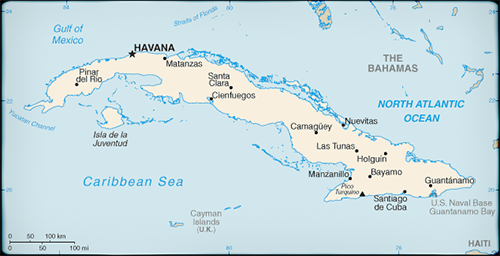On Tuesday, State Department officials confirmed that the Obama administration has done nothing to prevent the transfer of thousands of Cuban migrants in Central America to the U.S.-Mexico border.
Since Nicaragua closed its southern border and refused to let U.S.-bound islanders pass last year, Costa Rica and Panama have experienced a backlog of Cuban migrants in their territories. As a result, the Central American countries agreed to transfer over 8,000 stranded Cubans to Mexico so they could continue to the United States and take advantage of the Cuban Adjustment Act and the "wet foot, dry foot" policy that grants them immediate legal status and welfare eligibility.

Some of these transfers included direct flights (paid for by the islanders) to the Mexican border cities of Nuevo Laredo and Ciudad Juarez. The Cubans then simply presented themselves at the U.S. port of entry and were admitted. These transfers contributed to an uptick of Cuban migration, which has brought over 18,500 Cubans to the Laredo, Texas, Customs and Border Protection (CBP) field office in the past five months.
During Tuesday's subcommittee hearing on the State Department's FY 2017 budget request, Sen. Marco Rubio raised questions about the U.S. response to the rising number of Cuban migrants moving through Central America and Mexico to the United States. Francisco Palmieri, a senior official at the Bureau of Western Hemisphere Affairs, responded, "We continue to urge the countries to enforce their migration laws, to strengthen their border controls, and to address undocumented and irregular migration by returning people to their last point of origin." He identified this as the best way to address the continuing flows of Cuban migration. In terms of the U.S. response to potential additional airlifts, Palmieri said, "We have not told them not to do the airlift."
In contrast, the Mexican government has stated that it will not allow more Cubans to be transferred to its territory. Meanwhile, Costa Rica has reinforced its southern border with Panama and will henceforth initiate deportation proceedings for all illegal aliens that are detained.
Palmieri also recognized that there continues to be a large migration flow out of Cuba, a reflection of the "difficult economic and human rights condition in the country." However, there are "no plans to change the Cuban Adjustment Act at this time," Palmieri said. As such, a fear of change in policy should not be a factor in Cubans' decision calculus to migrate to the United States.
As Sen. Rubio noted, the current immigration policies are a strong incentive for Cubans to leave the island. Moreover, they are hurting the American taxpayer. Upon their arrival to the United States, Cuban migrants immediately receive status and qualify for a series of federal benefits.
In short, unless there is a change in the generous immigration policies towards Cuban nationals, the islanders will continue to make their way to the United States.
